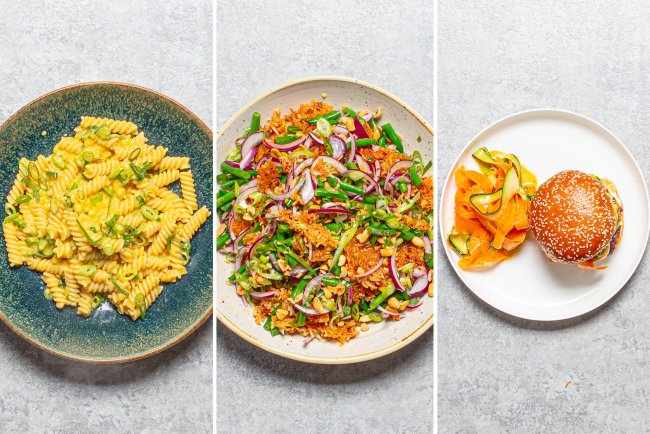Is It Possible to Live Longer by Replacing Plant Oils with Butter?
Prepare yourself if, like many others, you crave butter—the golden spread that makes toast sing and sauces melt in your mouth. The long-running argument over whether butter is unhealthy has gained new momentum according to a recent Harvard research.

A comprehensive study that was published in JAMA Internal Medicine suggests that substituting specific plant oils, such as olive, canola, or soybean, for your butter habit may help you live longer and improve your heart health.
Despite its deliciousness, butter is not helping you live a longer life.
Under the direction of Yu Zhang and a group of Harvard T.H. Chan School of Public Health researchers monitored the dietary habits of over 221,000 adults for up to 33 years during the course of many long-term investigations. That is a comprehensive depiction of actual eating habits spanning decades, not a single snapshot.
Among the most obvious conclusions? The risk of death was 15% higher for individuals who consumed the most butter than for those who used it infrequently. Conversely, individuals who regularly used plant-based oils were 16% less likely to die than those who used them seldom.
Mortality was not solely due to all causes. The researchers found that those who consume a lot of butter had higher rates of cancer-related deaths, whereas people who enjoy plant oils had reduced rates of cancer and heart disease mortality.
Why Plant Oils Are Better Than Butter Over Time
"Butter includes essentially no essential fatty acids and a little amount of trans fat—the worst sort of fat for cardiovascular disease," explained Dr.
Plant oils such as soybean, canola, and olive oil, on the other hand, are nutritional overachievers. They have a lot of:
Your body is unable to produce essential fatty acids on its own.
Antioxidants, which reduce oxidative stress and internal inflammation
Participants in a modeling analysis had lower odds of mortality overall, and particularly from cancer, when they replaced even 10 grams of butter per day, or slightly less than a tablespoon, with the same quantity of plant oil. That is a small push with a potentially significant nutritional benefit.
Does Butter Have Any Drawbacks? Not quite.
Do not freak out if you see yourself crying into your croissant. According to Willett, "a little butter for its flavor would not be a problem." Butter is still used in baking and cooking, and many people find its flavor to be warm, nostalgic, and even lyrical. But plant oils might be a better option for common drizzles, dollops, and spreads.
For daily cooking, Willett advises using liquid oils and experimenting with flavorful possibilities such as mustard oil, sesame oil, or several types of olive oil. They enhance the richness and complexity of your meals in addition to promoting heart and metabolic health. Additionally, if you still yearn for butter, richness, explore combinations that marry flavor with health—like blending a little butter with olive oil or using whipped versions to stretch flavor with minimal fat.
How Trustworthy Are These Findings?
This study's findings are not a random discovery. One of the most comprehensive observational diet studies to date, it is based on extensive data sets from the Health Professionals Follow-Up Study and the Nurses’ Health Study I and II. Participants completed questionnaires to update their nutritional intake every four years.
However, it is important to note the limitations. The data is self-reported, which exposes the chance to make mistakes (memory isn’t always a great meal diary). Additionally, the majority of participants were white medical professionals, therefore the findings might not apply to different demographics or dietary customs.
However, the study is a fascinating piece of the nutrition puzzle because of its scale, decades-long follow-up, and the researchers' meticulous efforts to adjust for confounding factors like smoking, physical activity, and medical history.
In summary, let your oils handle the heavy lifting.
Although butter is not a sin material, this study supports the mounting body of evidence that suggests unsaturated plant-based fats are better for long-term health than saturated animal fats. You only need to glance at your cooking oil if you want to subtly encourage your daily routines to be more longevity-friendly.
Consider it this way: You may want to make your olive oil bottle the focal point more often, but you do not have to relegate butter to the back of your refrigerator.
What's Your Reaction?




















